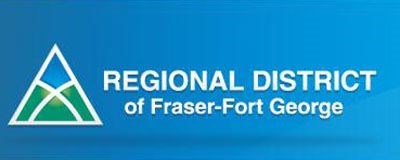The Regional District of Fraser-Fort George is still waiting on the outcome of its first review by the auditor general for local government.
The regional district was tagged as part of the first round of performance audits by auditor general Basia Ruta and her municipal watchdog office, looking at how it hires suppliers to provide various goods and services with analysis to make sure the district is receiving good value for money.
Announced back in the spring of 2013, the results of the review - which would also look at practices in Vernon, Delta, Revelstoke, Comox Valley Regional District and West Vancouver - were initially slated for release by the end of March 2014.
Regional district staff say they went through the audit process in the fall of 2013 and are still waiting to hear the results.
The reporting date has since changed twice, first pushed back to Aug. 31, 2014 and again to this spring. Out of the 18 local governments selected for review on various topics - local government performance in managing police agreements and police budget oversight; local government capital projects and asset management programs; the role of local government in ensuring clean drinking water; and managing the risks of limited human resources within small local governments - only one, the city of Rossland, was reported on in 2014.
"We had to revise our targets because in 2013/14 because we had to reallocate resources to deal with a pressing issue that emerged in one particular audit... so we're anticipating still making good progress and releasing more reports this year," said deputy auditor general Mark Tatchell.
The Rossland review of spending on capital projects between 2010 and 2012 revealed "many of the transactions reviewed did not meet the standards taxpayers would expect of their local government," Ruta said in a press release. This included not receiving value for money on the replacement of the Rossland arena complex's roof and that as of the audit's completion in February 2014, some of the city's "policies and procedures still exposed Rossland taxpayers to substantial financial risk."
There are a total of 17 reports still awaiting release by the end of March, said Tatchell.
"I think we recognize we took on a large number of audits to begin with," he said. "We're working our way through those and we are making good progress on them, I can certainly say that."
And although the office officially opened its doors in Surrey in mid-January 2013, the last fiscal year was the AGLG's first full year in operation, Tatchell said. With a new model unlike anything else in the country, it took a fair bit of groundwork to get it going, he said.
"Most auditors general under the provincial or federal level report to the parliamentary body. There isn't an equivalent in the local government sphere," Tatchell said. "The provincial auditor general has just one government to work with - we've got 190, and they're not all the same. All those things make the job more interesting, but also creates some challenges in terms of moving ahead."
When the office was first proposed by the provincial government, the Union of B.C. Municipalities had its doubts. A 2011 policy paper endorsed by the membership included a caveat that while they would negotiate with the province through its creation, they disagreed on its necessity.
The majority of issues and concerns would be that the office would function like the auditors general at the provincial and federal level, said UBCM president Sav Dhaliwal.
"Since then we've had made pretty clear that the model that works at the federal government and provincial government cannot work because we have 190 different (local) governments and each one of them is unique," Dhaliwal, a Burnaby city councillor, said. "They're different in their policy, different in their locations. So there are definitely challenges producing reports and doing audits based on the service delivery for each different area or different government that the auditor chooses."
Despite initial misgivings about the scope and role of the auditor general for local government, the UBCM has come on board with the office.
"We have welcomed [Ruta] at our convention, we continue to work with her and we always look forward to the reports that are being produced," Dhaliwal said. "I look forward to the new ones coming out because I think there's always an opportunity for us to learn, to see if there's some way to provide a service better - a service that's more direct to the objectives and we want to learn from that."
The delay in reporting isn't a cause for concern for the UBCM, Dhaliwal said, acknowledging the office has a complex job.
"Her contributions to improving our practices and our services isn't going to be measured by the number of reports produced, but rather the quality of the reports," Dhaliwal said. "If that takes time, then so be it."
In the interim, the UBCM president said the group will be keeping its eye on the pressure being placed on municipal staff to participate in the audits.
"Local governments are run on a very, very fine budget and we don't have a whole lot of slack built in to any of our services and delivery so that we have spare time," Dhaliwal said. "We'll continue to monitor that and work with the auditor general to make sure that we can work more collaboratively and in a sense that has minimal impact on the services we deliver."



